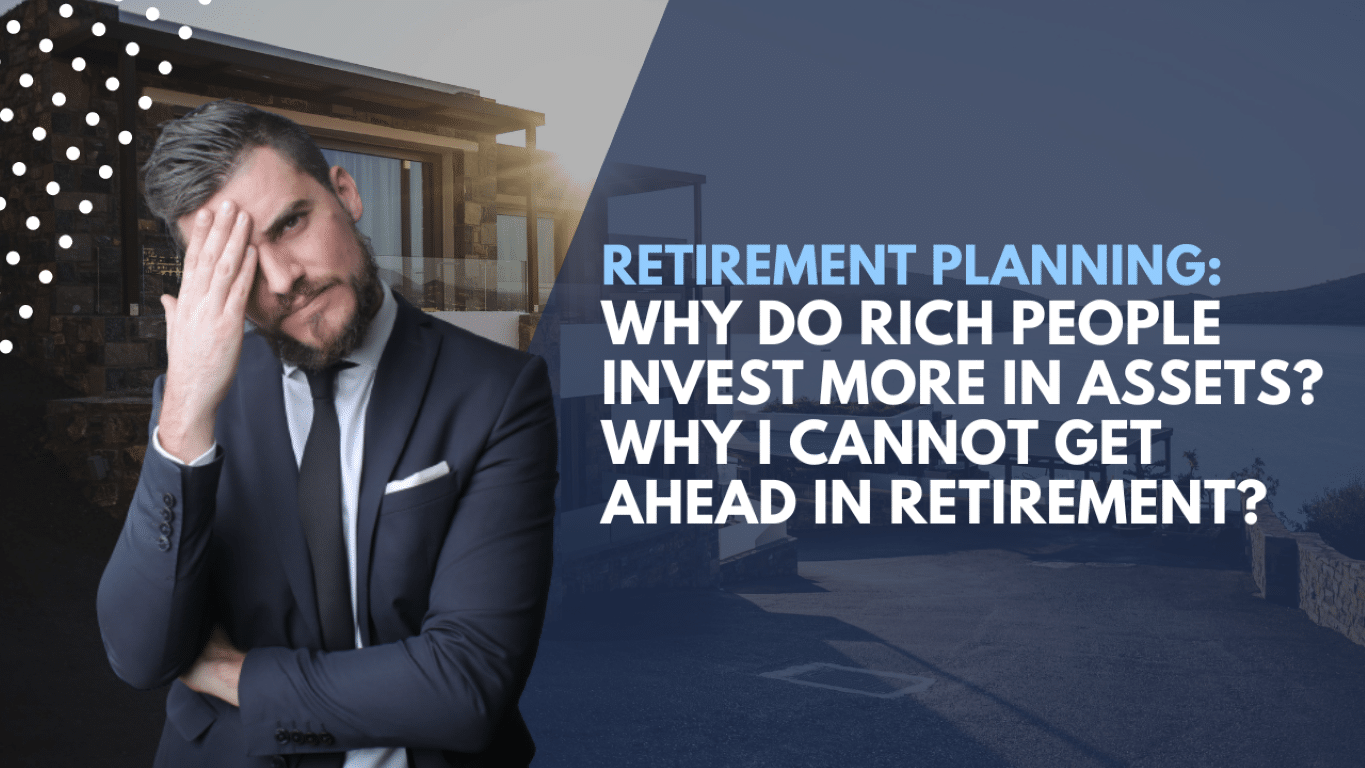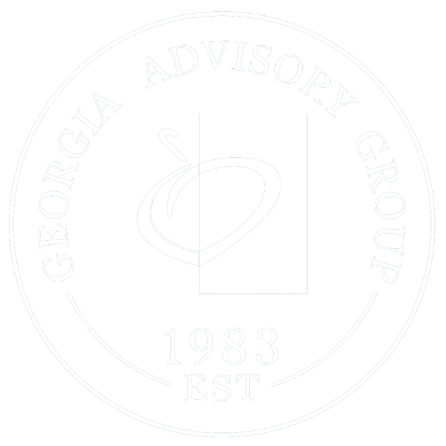Why do Rich People Invest more in Assets?
Why I Cannot Get Ahead in Retirement?
At 62, I’m telling you to get busy now for retirement. For 40 years in the financial industry, I’ve seen just about everything you can imagine when it comes to finances and family and how it impacts those so-called golden years ahead.
Hello, Dave Duley here with Georgia Advisory Group, a full-service planning firm located in Alpharetta. Divorce, death, college expenses, loans, credit cards, and medical expenses all play a critical role in impacting retirement for many people. The word “retirement” often seems like a fantasy.
I don’t know your particular situation, but I can share real-life stories that I have witnessed, and I hope they will help you feel there is hope for the future when things seem financially hopeless. One quote that was ingrained in me as a young man by my father is that there is no “pauper’s jail,” meaning just because I felt like the poorest kid in town and was wondering how I was going to make my car payment, no one was going to come knocking on my door and lock me up because I was behind on my finances.
He would also let me grieve, express my frustration, and basically pitch a fit. Then, when I would come up for air, he would quietly ask if I was done, and then simply say, “What are you going to do about the situation you’re in?” I quickly learned that after going through the pity party, it was important to sit down and figure out how to rectify the particular problem. We’ve all been there, or at least most of us.
So let’s start with some basics: rich people buy assets, and poor people buy liabilities. If we think about this for a moment, we realize that spending money on things that return no value or lose value is not a good move. A car, a jet ski, a boat, a motorcycle, jewelry, travel, fancy restaurants – they either lose value or bring us no value. They don’t build wealth. I know you might be saying, “Wait a minute, Dave, I know plenty of people who have these things and have already built wealth.” I’m not talking about them; I’m talking about you.
If you need a car, it better be an inexpensive but reliable one. Let your friends buy the boats and toys and rent or borrow them. All those items are exactly what most rich people today have not done in their younger years while they were building wealth. They saved, sacrificed to get out of debt, and bought assets like stocks, rental properties, and invested in businesses. They put their hard-earned dollars where they would return value, not go down in value. They worked two jobs, maybe three.
I remember going from 185 pounds to 135 pounds in an eight-month period while holding two jobs and working 16 hours a day. That experience was the best because I hated it so much that I swore I would never let that happen again. During that time, I saved a bunch of money to invest in my first company. I didn’t have time to go out when I was working 16 hours a day, so I was able to save and put away anything I earned. It’s never too late.
Don’t give up. Most of my millionaires had nothing or very little saved at age 50. That’s right, they went from nothing to a millionaire in an average of 10 to 15 years. Their kids were grown, and finally out of their pockets. Divorce was over, and now it was their time. I’ve seen it over and over again.
One final point for this video: don’t think you have to own a home versus renting until you get ahead financially. I know this may be a controversial subject, but the facts are facts. Too many people have been sold a bill of goods on owning versus renting when starting out. Yes, when we are young, we want to keep up with the Joneses, but I have met less than a handful of families over a 30-year period that can show me the numbers proving they’ve made money in buying and selling a home, except for flipping it.
I understand that flipping can be profitable, just like buying an undervalued stock and selling it in a short period of time. But the hard truth is, for most people, buying a home doesn’t yield significant profits. Let’s take an example: if you purchase a home for $350,000 and put down 20 percent or $70,000 at closing, in most cases, you’ll have a $290,000 mortgage after closing and a $2,500 monthly payment, including property taxes, homeowners insurance, and HOA fees. Your baseline costs yearly on that home are $30,000 before you even lay your first bale of pine straw or plant a flower.
For this illustration, let’s assume you never cut your grass over ten years, never painted a room, or improved anything in the house. After ten years, you sell your home for $550,000, meaning your home increased in value by 60 percent. Your mortgage payoff after ten years of making payments would be around $245,000. So, you bought the house for $350,000 and sold it for $550,000, a 60-plus percent increase. You pay off your mortgage, which is $245,000, and you net $305,000. However, remember that your mortgage payments were $300,000 over that time frame. Don’t forget the $70,000 you put down on the house when you started.
So, you paid in $370,000 in down payment and mortgage payments, and you lost $65,000 once you sold it. And that’s not even considering the thousands you spent on fix-ups, lawn maintenance, and basic services over those 10 years. Even if you had sold the home for $700,000, literally doubling your money, you would still have just broken even at best. The numbers show that you would have needed a 20 percent increase in your home’s value every year and sell it within a five-year time frame to make any significant profit. And even then, finding another home in the same area to buy would be virtually impossible unless there was a major downswing in prices and you sold at the right time.
So, starting out or starting over is the key. Build cash and savings before you start buying liabilities. Remember to buy assets, swallow your pride, and get to work. You can do it. And of course, get with a planning firm to help you walk through your specific situation. If you enjoyed the content, subscribe below and visit our website to get weekly videos and add your email to our mailing list. Till next time.


